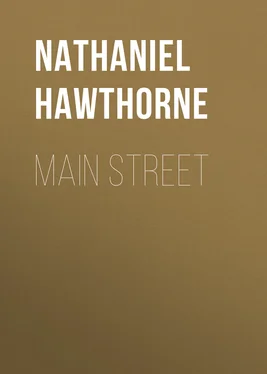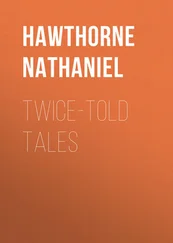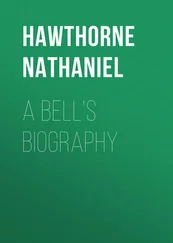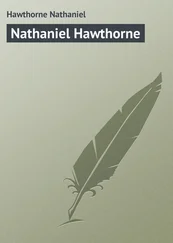Nathaniel Hawthorne - Main Street
Здесь есть возможность читать онлайн «Nathaniel Hawthorne - Main Street» — ознакомительный отрывок электронной книги совершенно бесплатно, а после прочтения отрывка купить полную версию. В некоторых случаях можно слушать аудио, скачать через торрент в формате fb2 и присутствует краткое содержание. Жанр: Альтернативная история, Исторические приключения, на английском языке. Описание произведения, (предисловие) а так же отзывы посетителей доступны на портале библиотеки ЛибКат.
- Название:Main Street
- Автор:
- Жанр:
- Год:неизвестен
- ISBN:нет данных
- Рейтинг книги:3 / 5. Голосов: 1
-
Избранное:Добавить в избранное
- Отзывы:
-
Ваша оценка:
- 60
- 1
- 2
- 3
- 4
- 5
Main Street: краткое содержание, описание и аннотация
Предлагаем к чтению аннотацию, описание, краткое содержание или предисловие (зависит от того, что написал сам автор книги «Main Street»). Если вы не нашли необходимую информацию о книге — напишите в комментариях, мы постараемся отыскать её.
Main Street — читать онлайн ознакомительный отрывок
Ниже представлен текст книги, разбитый по страницам. Система сохранения места последней прочитанной страницы, позволяет с удобством читать онлайн бесплатно книгу «Main Street», без необходимости каждый раз заново искать на чём Вы остановились. Поставьте закладку, и сможете в любой момент перейти на страницу, на которой закончили чтение.
Интервал:
Закладка:
Within the door of the cottage you discern the wife, with her ruddy English cheek. She is singing, doubtless, a psalm tune, at her household work; or, perhaps she sighs at the remembrance of the cheerful gossip, and all the merry social life, of her native village beyond the vast and melancholy sea. Yet the next moment she laughs, with sympathetic glee, at the sports of her little tribe of children; and soon turns round, with the home-look in her face, as her husband’s foot is heard approaching the rough-hewn threshold. How sweet must it be for those who have an Eden in their hearts, like Roger Conant and his wife, to find a new world to project it into, as they have, instead of dwelling among old haunts of men, where so many household fires have been kindled and burnt out, that the very glow of happiness has something dreary in it! Not that this pair are alone in their wild Eden, for here comes Goodwife Massey, the young spouse of Jeffrey Massey, from her home hard by, with an infant at her breast. Dame Conant has another of like age; and it shall hereafter be one of the disputed points of history which of these two babies was the first town-born child.
But see! Roger Conant has other neighbors within view. Peter Palfrey likewise has built himself a house, and so has Balch, and Norman, and Woodbury. Their dwellings, indeed,—such is the ingenious contrivance of this piece of pictorial mechanism,—seem to have arisen, at various points of the scene, even while we have been looking at it. The forest-track, trodden more and more by the hobnailed shoes of these sturdy and ponderous Englishmen, has now a distinctness which it never could have acquired from the light tread of a hundred times as many Indian moccasins. It will be a street, anon! As we observe it now, it goes onward from one clearing to another, here plunging into a shadowy strip of woods, there open to the sunshine, but everywhere showing a decided line, along which human interests have begun to hold their career. Over yonder swampy spot, two trees have been felled, and laid side by side to make a causeway. In another place, the axe has cleared away a confused intricacy of fallen trees and clustered boughs, which had been tossed together by a hurricane. So now the little children, just beginning to run alone, may trip along the path, and not often stumble over an impediment, unless they stray from it to gather wood-berries beneath the trees. And, besides the feet of grown people and children, there are the cloven hoofs of a small herd of cows, who seek their subsistence from the native grasses, and help to deepen the track of the future thoroughfare. Goats also browse along it, and nibble at the twigs that thrust themselves across the way. Not seldom, in its more secluded portions, where the black shadow of the forest strives to hide the trace of human-footsteps, stalks a gaunt wolf, on the watch for a kid or a young calf; or fixes his hungry gaze on the group of children gathering berries, and can hardly forbear to rush upon them. And the Indians, coming from their distant wigwams to view the white man’s settlement, marvel at the deep track which he makes, and perhaps are saddened by a flitting presentiment that this heavy tread will find its way over all the land; and that the wild-woods, the wild wolf, and the wild Indian will alike be trampled beneath it. Even so shall it be. The pavements of the Main Street must be laid over the red man’s grave.
Behold! here is a spectacle which should be ushered in by the peal of trumpets, if Naumkeag had ever yet heard that cheery music, and by the roar of cannon, echoing among the woods. A procession,—for, by its dignity, as marking an epoch in the history of the street, it deserves that name,—a procession advances along the pathway. The good ship Abigail has arrived from England, bringing wares and merchandise, for the comfort of the inhabitants, and traffic with the Indians; bringing passengers too, and, more important than all, a governor for the new settlement. Roger Conant and Peter Palfrey, with their companions, have been to the shore to welcome him; and now, with such honor and triumph as their rude way of life permits, are escorting the sea-flushed voyagers to their habitations. At the point where Endicott enters upon the scene, two venerable trees unite their branches high above his head; thus forming a triumphal arch of living verdure, beneath which he pauses, with his wife leaning on his arm, to catch the first impression of their new-found home. The old settlers gaze not less earnestly at him, than he at the hoary woods and the rough surface of the clearings. They like his bearded face, under the shadow of the broad-brimmed and steeple-crowned Puritan hat;—a visage resolute, grave, and thoughtful, yet apt to kindle with that glow of a cheerful spirit by which men of strong character are enabled to go joyfully on their proper tasks. His form, too, as you see it, in a doublet and hose of sad-colored cloth, is of a manly make, fit for toil and hardship, and fit to wield the heavy sword that hangs from his leathern belt. His aspect is a better warrant for the ruler’s office than the parchment commission which he bears, however fortified it may be with the broad seal of the London council. Peter Palfrey nods to Roger Conant. “The worshipful Court of Assistants have done wisely,” say they between themselves. “They have chosen for our governor a man out of a thousand.” Then they toss up their hats,—they, and all the uncouth figures of their company, most of whom are clad in skins, inasmuch as their old kersey and linsey-woolsey garments have been torn and tattered by many a long month’s wear,—they all toss up their hats, and salute their new governor and captain with a hearty English shout of welcome. We seem to hear it with our own ears, so perfectly is the action represented in this life-like, this almost magic picture! But have you observed the lady who leans upon the arm of Endicott?–a rose of beauty from an English garden, now to be transplanted to a fresher soil. It may be that, long years—centuries indeed—after this fair flower shall have decayed, other flowers of the same race will appear in the same soil, and gladden other generations with hereditary beauty. Does not the vision haunt us yet? Has not Nature kept the mould unbroken, deeming it a pity that the idea should vanish from mortal sight forever, after only once assuming earthly substance? Do we not recognize, in that fair woman’s face, a model of features which still beam, at happy meets, on what was then the woodland pathway, but has out since grown into a busy street?
“This is too ridiculous!—positively insufferable!” mutters the same critic who had before expressed his disapprobation. “Here is a pasteboard figure, such as a child would cut out of a card, with a pair of very dull scissors; and the fellow modestly requests us to see in it the prototype of hereditary beauty!”
“But, sir, you have not the proper point of view,” remarks the showman. “You sit altogether too near to get the best effect of my pictorial exhibition. Pray, oblige me by removing to this other bench, and I venture assure you the proper light and shadow will transform the spectacle into quite another thing.”
“Pshaw!” replies the critic; “I want no other light and shade. I have already told you that it is my business to see things just as they are.”
Конец ознакомительного фрагмента.
Текст предоставлен ООО «ЛитРес».
Прочитайте эту книгу целиком, купив полную легальную версию на ЛитРес.
Безопасно оплатить книгу можно банковской картой Visa, MasterCard, Maestro, со счета мобильного телефона, с платежного терминала, в салоне МТС или Связной, через PayPal, WebMoney, Яндекс.Деньги, QIWI Кошелек, бонусными картами или другим удобным Вам способом.
Интервал:
Закладка:
Похожие книги на «Main Street»
Представляем Вашему вниманию похожие книги на «Main Street» списком для выбора. Мы отобрали схожую по названию и смыслу литературу в надежде предоставить читателям больше вариантов отыскать новые, интересные, ещё непрочитанные произведения.
Обсуждение, отзывы о книге «Main Street» и просто собственные мнения читателей. Оставьте ваши комментарии, напишите, что Вы думаете о произведении, его смысле или главных героях. Укажите что конкретно понравилось, а что нет, и почему Вы так считаете.












